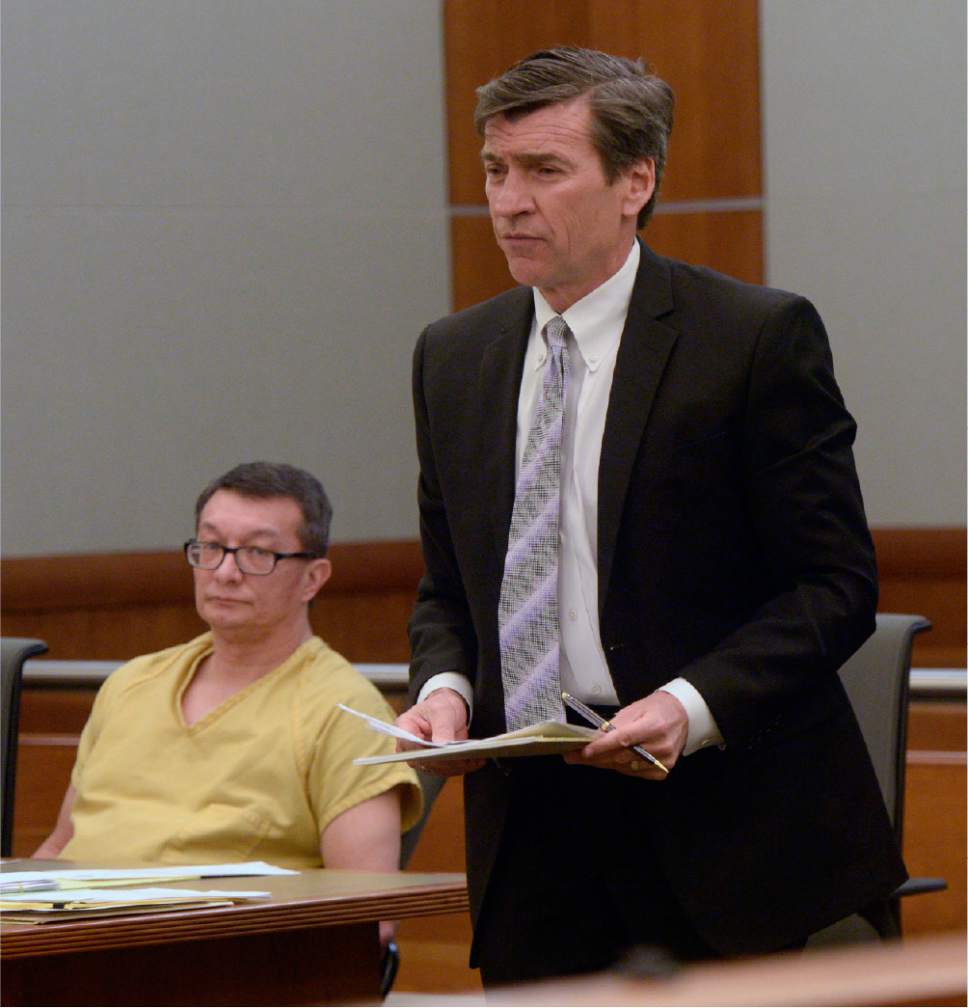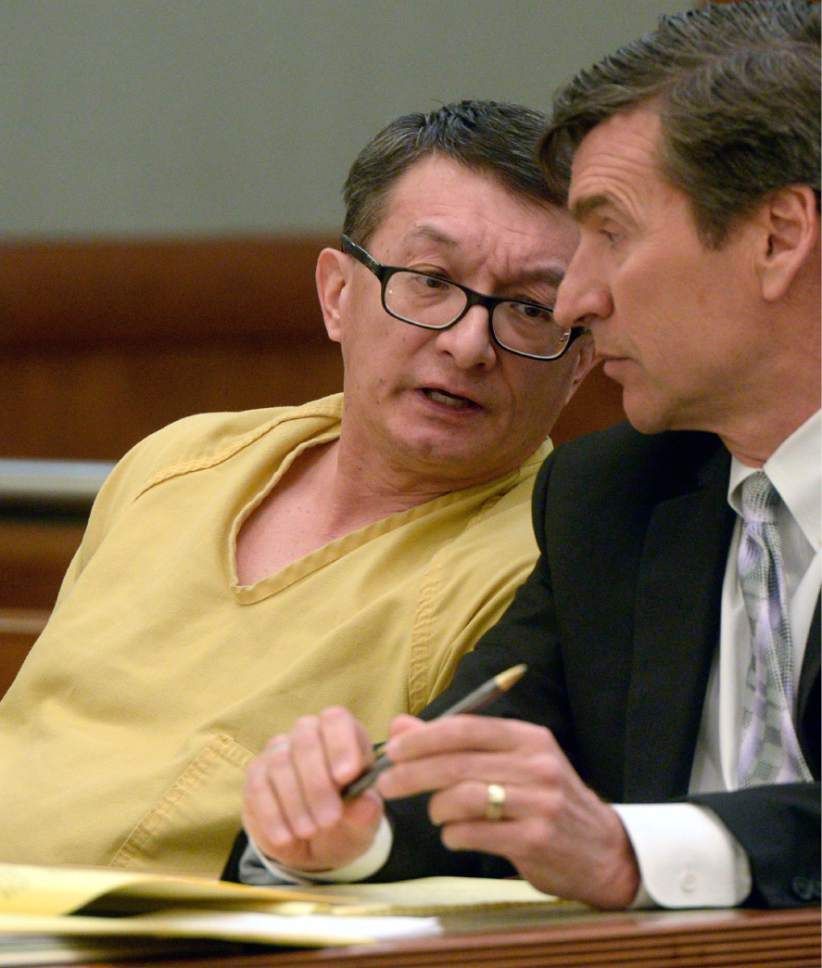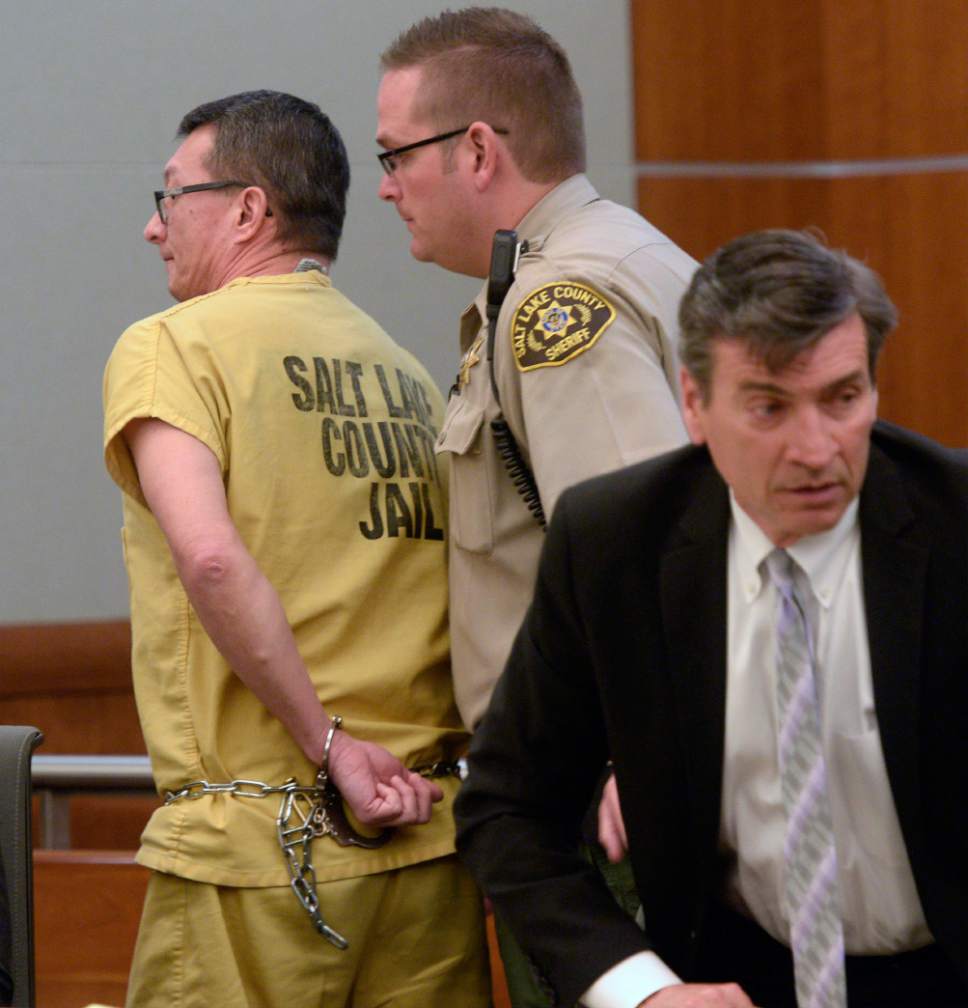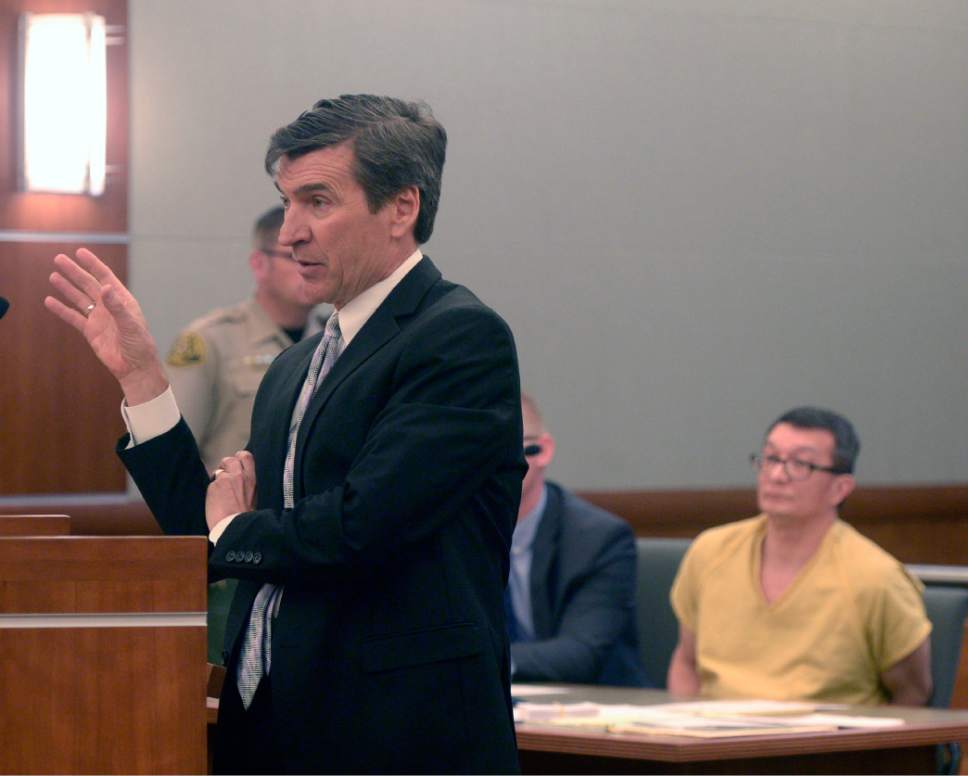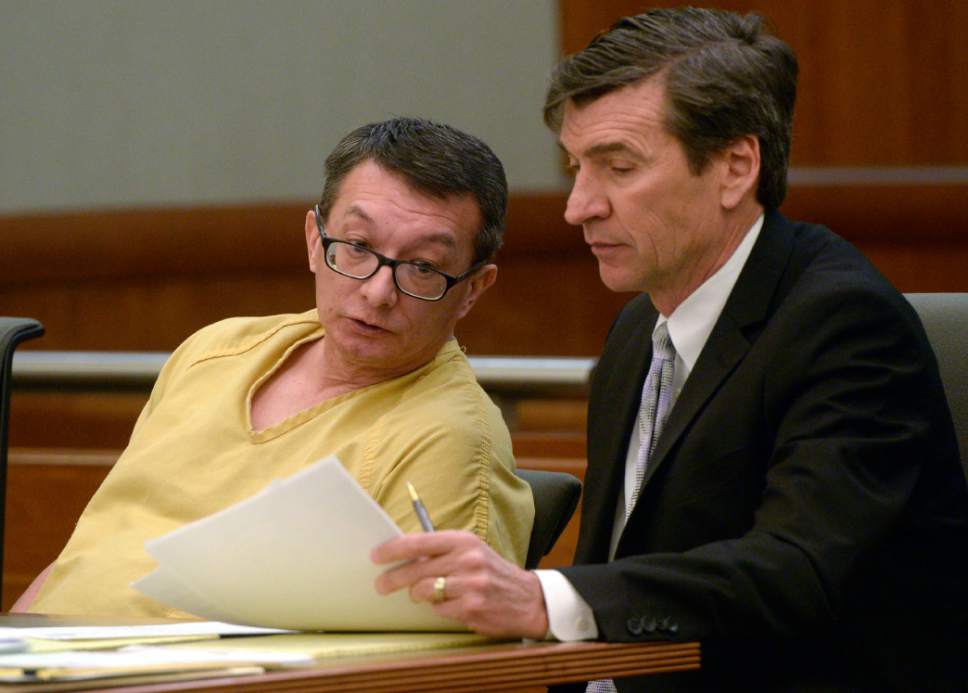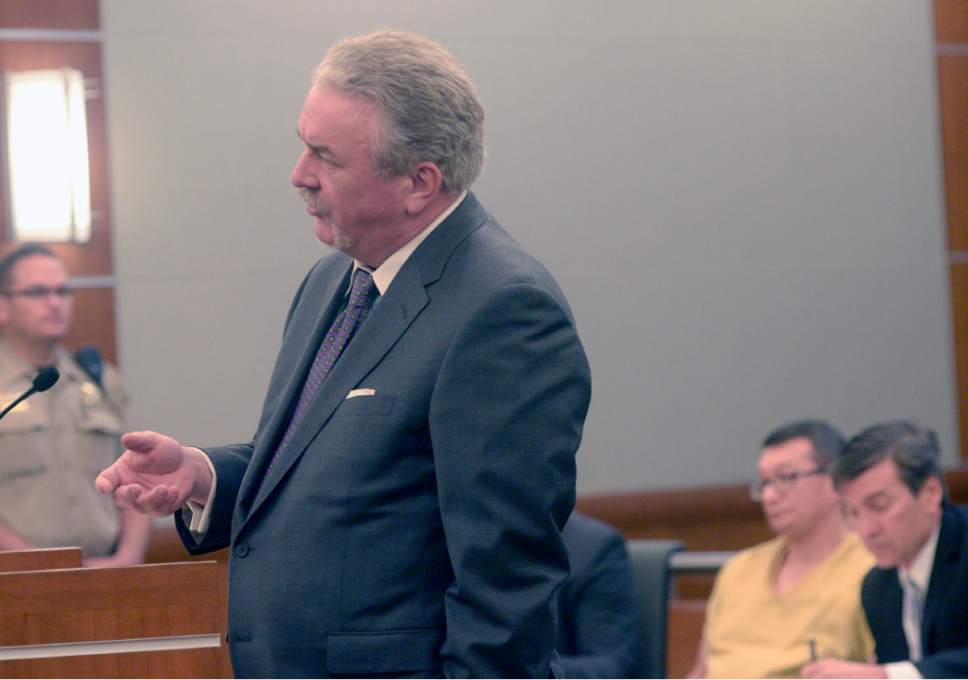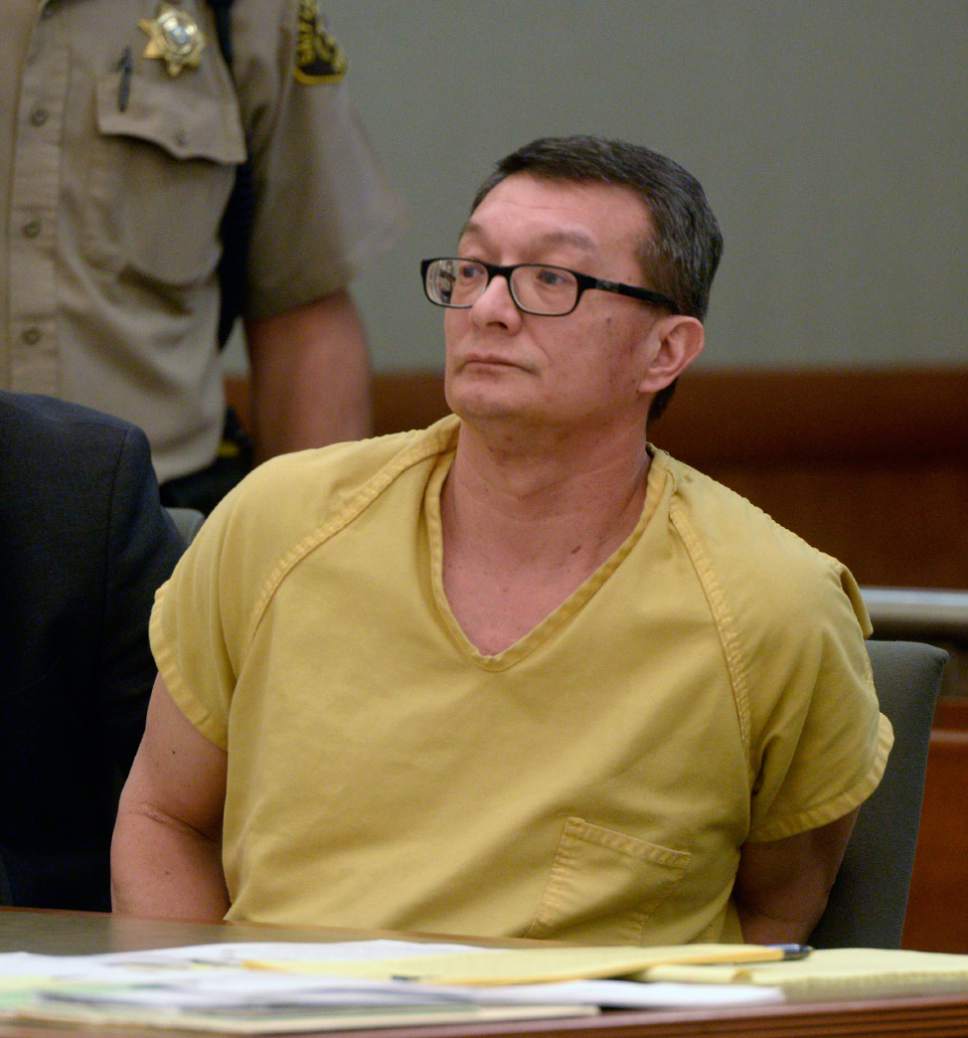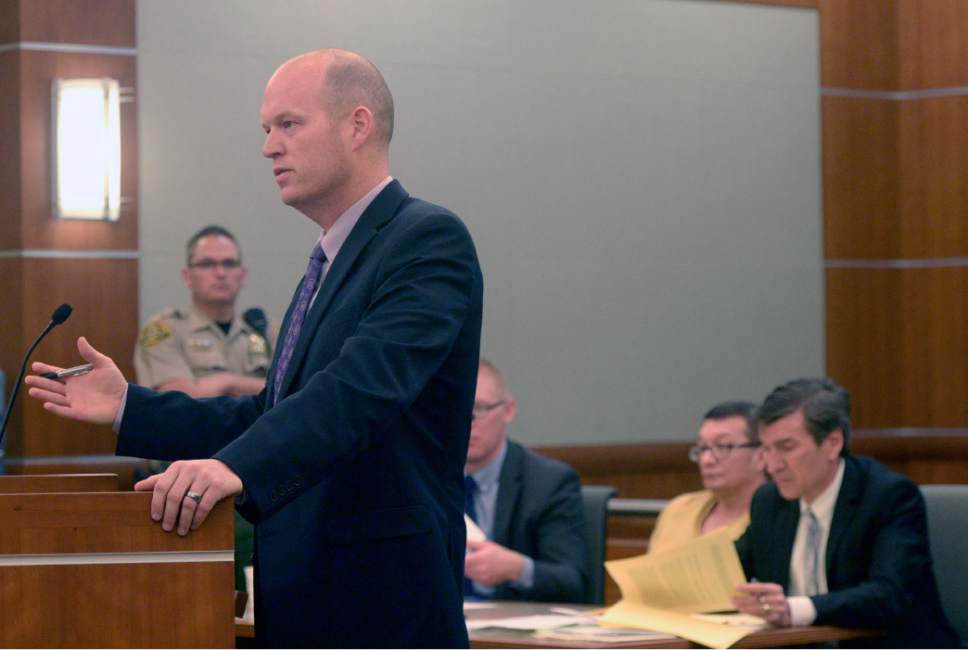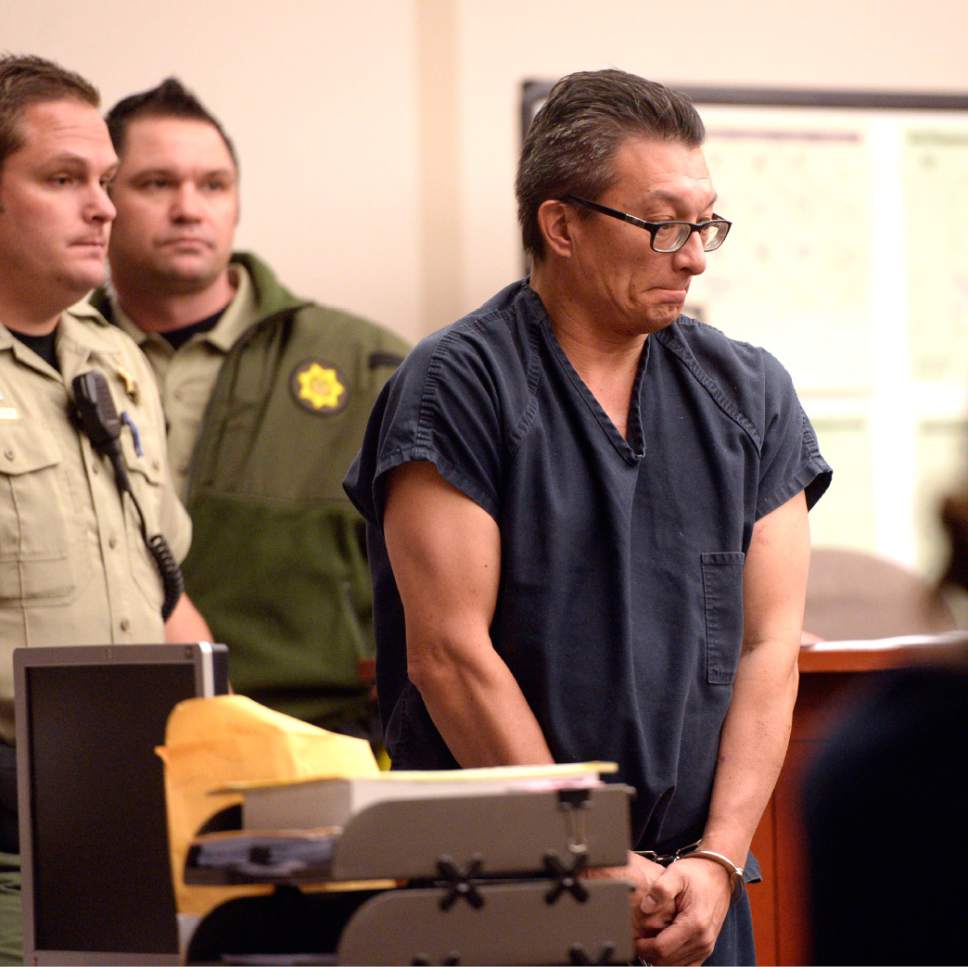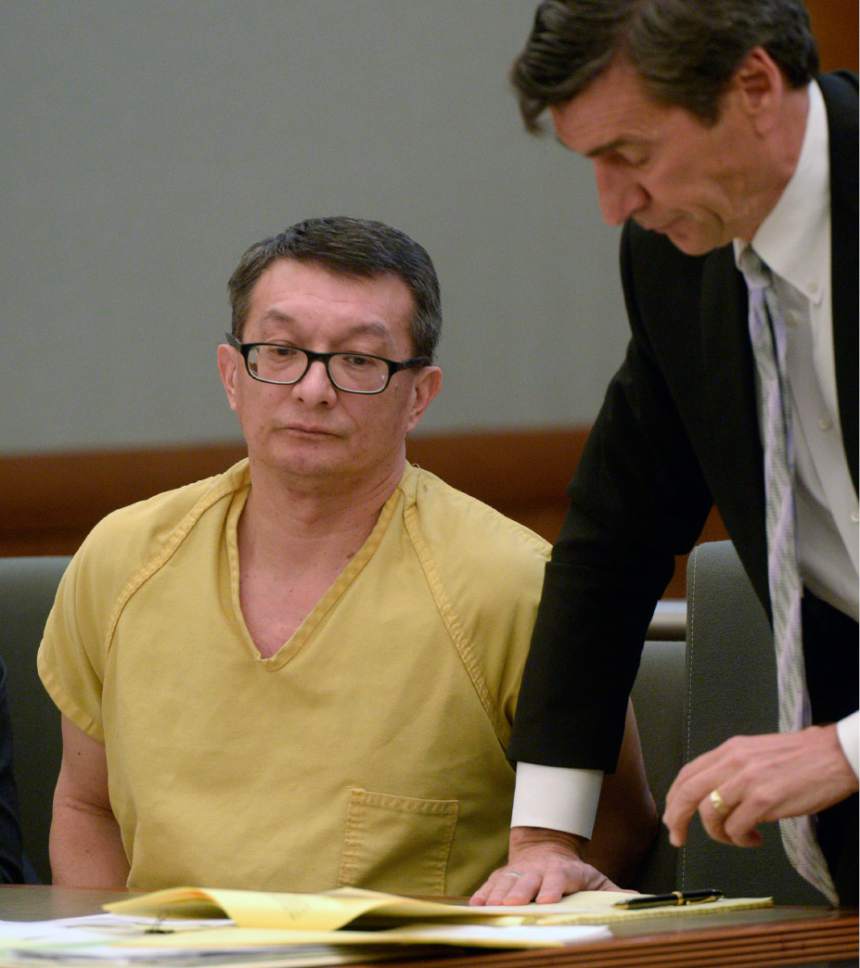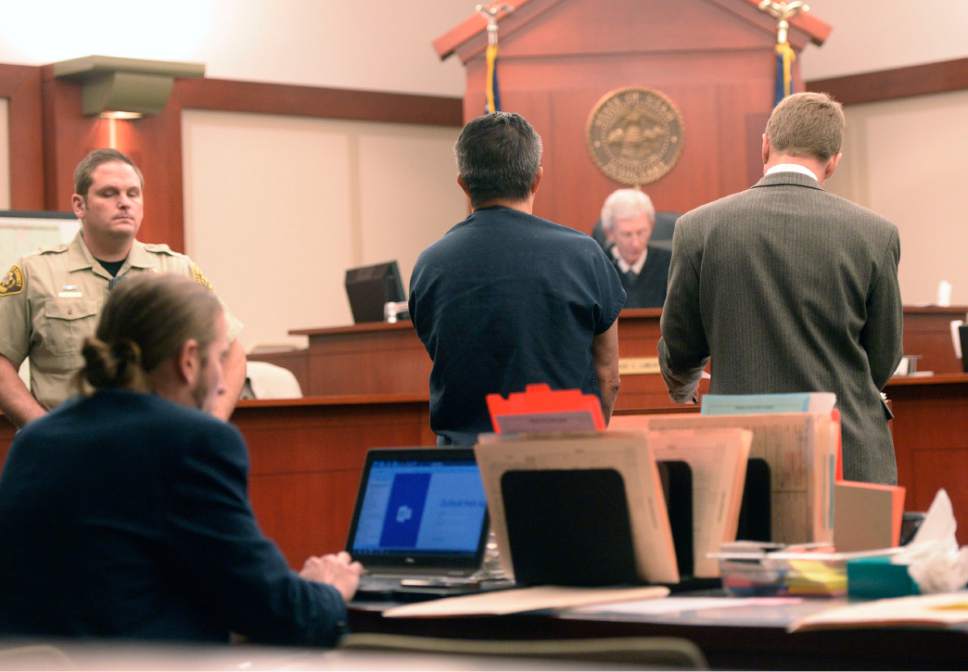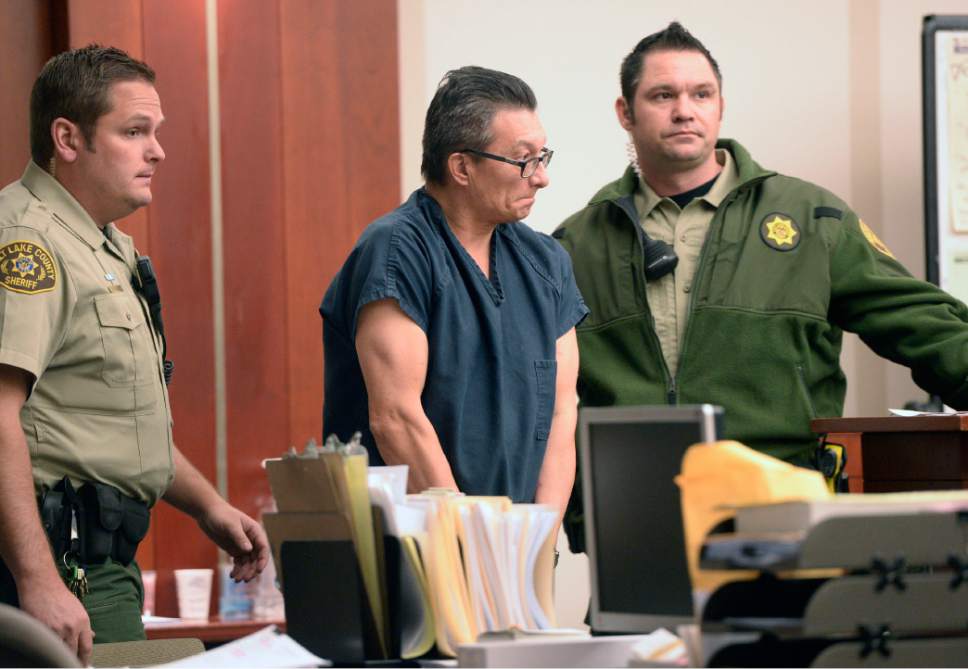This is an archived article that was published on sltrib.com in 2016, and information in the article may be outdated. It is provided only for personal research purposes and may not be reprinted.
West Jordan • A Sandy man on trial for a murder told a jury on Thursday that he awoke to chaos and screaming on the morning of the shooting and fired at the woman leaving his home because he was frightened and thought he was being robbed.
"I was scared as can be," Larry Kent Graff said from the stand in 3rd District Court. "I have never been that scared before."
Graff, 54, is charged with one count of first-degree felony murder in connection with the Dec. 18, 2014, death of 26-year-old Candice Christina Melo. He also faces one count of first-degree felony attempted murder for firing at Melo's boyfriend, Michael Grimsley, during the same episode.
If convicted, Graff, who is called Kent by his family and friends, could spend the rest of his life in prison.
Closing arguments and jury deliberations are set for Friday.
Graff told jurors he left Melo, Grimsley and another man into his house around midnight on Dec. 18. Melo had been temporarily living there and had come to the house to retrieve some property — a hoodie sweatshirt for Grimsley — that she had left behind, he said.
Melo was also looking for Graff's girlfriend, Tennel Jensen, and was angry because she thought Jensen had had sex with Grimsley, Graff said.
Jensen wasn't home, but Graff said he let the three stay and wait. Graff went back to bed after Jensen arrived at home, but said he told her he wanted Melo and the others to leave because he was unsure about their intentions.
"Tennel's a drug addict," Graff, then an eBay call center worker, told the jury. "And a lot of the people she had over to the house were violent criminals," and also drug users.
Jensen tried to brush off those fears but asked him to give her a gun for protection, Graff said.
A concealed weapon permit holder, Graff said left Jensen with his 9mm handgun and took his .22-caliber pistol with him to his basement bedroom.
He woke a short time later to Jensen's shouts for help and ran upstairs, gun in hand. Melo was standing in a hallway holding his laptop, Graff said.
"I yelled at them to put my belongings down and get out of my house," he testified.
Graff said he didn't understand what was going on and was suspicious about Melo's intentions because she had stayed nearly six hours, but never talked about retrieving any belongings.
Graff also said he didn't know whether Melo or the others had weapons and never saw the gun he had given to Jensen — a story he acknowledged under cross-examination by Deputy Salt Lake County District Attorney David Wayment that was different from one he initially told police.
Graff told the jury his anxiety and suspicions grew when Melo and the two men failed to leave despite repeated requests. He also said Melo kept moving back and forth between the hallway, a bedroom and a living room to talk to the other man.
"I thought something was going on," Graff testified. "I was getting more and more scared."
When Melo darted from the house with his laptop, Graff said he gave chase.
"I was firing my .22. I was running, I was firing low. I was aiming low, not high," he testified. "I just wanted to chase them out of the house so that they were going to go and not come back."
On cross-examination, Graff said he didn't realize Melo had been hit because her pace didn't slow. Graff said he thinks a bullet struck Melo in the head as she fell to the ground.
"When I see her fall down" he testified. "I stop shooting."
Graff said he then heard Grimsley shouting behind him and turned, his finger still on the trigger.
"I was surprised I fired" he testified. "I wasn't sure if he was going to charge me."
Graff said the gun locked back and was out of ammunition after he fired at Grimsley. In all, he testified to firing 11 rounds.
On cross-examination, Graff told Wayment that based on his weapons permit training class, he believed he had a right to defend his home and property.
"My understanding from the class is that your home is your castle and you have a right to protect your castle," Graff testified. "I assumed that when I kept on telling these people to leave my house, the rules applied; that they were there to do grave bodily harm [to me] and I had the right to use force."
Graff's attorney, Greg Skordas, contends the case is one of "imperfect self-defense" and that given the circumstances surrounding the shooting — that Graff believed he was being robbed — that his actions might be considered reasonable.
Under the law, imperfect self-defense applies when a defendant incorrectly, but reasonably, believes their conduct is justifiable. It doesn't excuse a person's conduct, Skordas explained outside the courtroom, but it can reduce a person's level of culpability in a crime.
If the jury agrees, they could consider other lesser criminal charges when they begin deliberations, Skordas said.


